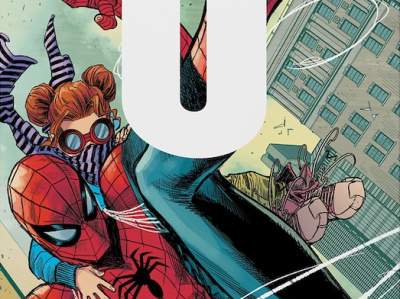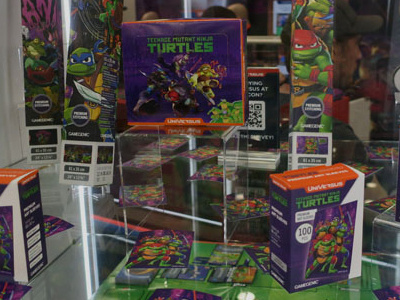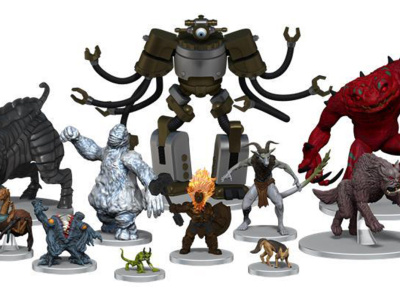In Business 3x3, a business retailer or executive will share their experience with three things they’ve done right, three things they’ve done wrong, and what else they’ve learned along the way.
If you’re looking for experience so you can get a "real job," maybe look into buying a comic store? It worked for Trent Walsh once upon a time.
"I didn’t read many comics when I was a kid," Walsh says today. "But when I went to college, after my first summer back, my best friend at the time had really gotten into comics, and he brought a stack of X-Men for me to read. I thought 'Hey, these are pretty cool,' and when I went back to college I started reading and collecting comics."
College graduation came knocking for Walsh in 1993, as did a minor recession.
"It was hard getting a job right out of college because everyone was looking for someone with experience," Walsh remembers. "So I thought, 'Well, I’ll start a comic store, run it for a couple years, and then I’ll have experience.' I was 22, 23 at the time, and it seemed like a relatively good idea."
A local store was going out of business, so Walsh and his pal Benny bought it out, and BaT Comics, for "Benny and Trent" was born in Chico, California.
"We did BaT, because TaB didn’t sound cool," Walsh says.
Trent eventually bought Benny out to become the sole owner, and "& Games" was added to the moniker as well.
Now 30 years later, BaT Comics & Games is still going strong, and Walsh has learned much in his experience…
THE GOOD
ESTABLISH PROCESSES
Walsh is a big believer in setting up the right system, and letting the system run. By way of example? His employee handbook.
"It’s not terribly thick, 12-15 pages," Walsh says. "But half the time when an employee asks, ‘How should I do this?’ or 'What’s happening with this?' I ask them, 'Have you checked the employee handbook?' And sure enough, it’s there.”
Processes ensure that Walsh isn’t constantly re-inventing the wheel.
"My training and onboarding is pretty much the handbook," he says. "Page 1 tells you how to do this. Page 2 tells you how to do that. Once you know the handbook, you know 90% of the job."
Rules are great, but Walsh also realizes that exceptions are important.
"I do let employees have flexibility on doing things their own way," he says. "You have to let people feel, to a certain extent, that it’s their thing as well, and they’re not just cogs in the machine. But I think it’s important to make sure we have some basic standards that I know will work."
GET GOOD PEOPLE
And those employees are crucial.
"Economy is a factor, but looking back at our history, when we have good staff, we have good years," Walsh says. "People make such a difference. Good people are responsible for a 10% swing, minimum. You need people who can make that sale, who can identify what inventory will be hot, and they allow you to do your job better, then."
Finding the right people is also part of Walsh’s process-building. He’ll get 50-100 applicants for an open position, but always requires a resume.
"Honestly, that weeds out half the people right away," he says. "If you can’t put together a resume, that tends to say a lot about you. Honestly, you can Google something, and there are blank online forms. If you can’t do that… well, that’s great. 'Cause that weeds you out for me."
Walsh also has applicants fill out a questionnaire asking them about hobbies, interests and so on.
"I’ve had good employees who weren’t necessarily interested in comics or games as hobbies, but it gives me a chance to get to know them, see where they are," he says.
FOLLOW THE DATA
Some folks might like to go with their gut, but Walsh relies on black ink on white paper.
"I believe details and stats are really important," he says. "I have over 20 years of stats from our POS system, and even before when we just had a cash register, I would run reports and type the data in. I can break down every department, and can see, for example, how we do every August in graphic novels. Five, 10, 20 years ago, whatever. I can see how we did in the month in general, or any category in any month."
Walsh considers the numbers his reality check.
"It’s important because there are things you may not notice when you’re focused on the day-to-day, week-to-week," he says. "But with years of data, you can start to see things you might not have seen otherwise. And when you think you’re seeing a trend, you can check it. 'I think this is going down. But is it really? Let’s check the numbers.'"
THE BAD
DON’T FORGET THE WEBSITE SALES!
A quality website is a tool. Walsh just wishes he would have used his as a multi-tool earlier.
"We’ve always had a website; we had one within a year of opening up," he says. "But it’s largely been an informational website: this is who we are, this is what we do, this is what’s in the store. But it’s not really a sales website."
Walsh missed the sales aspect early, and is still playing catch-up.
"I made a decision maybe 15 years ago I didn’t want to deal with putting a real effort and focus on selling online, and obviously, that was a really bad call now looking at it," he says. "We could easily be doing $5000-$10,000 in sales a month online if we would have focused on it, but it’s tougher to get into it now. I knew it was an opportunity, but I was like, 'Eh. Something worth looking at, but I don’t really want to do it.' Now I wish I would have."
MAINTAIN COMMUNITY
Walsh also has a military background, but active duty once led to a lack of continuity and loss of community.
"We were the first real card game store in town that did singles, tournaments, sold packs, and we were the best at it for years," Walsh says. "Then I got activated and was gone for 18 months, and the people I left behind did not want to deal with all that stuff. They just let it go, and we lost the community."
Again, Walsh is still playing catch-up.
"I used to have people who would hang out and play and mess around even when we weren’t holding tournaments, and when I got back, we had lost all that," he says. "When I got back, it took me years to build the store back, sales-wise, and I’m still working on getting that community back. We lost it, and other stores took it over."
GO ALL IN... OR NOT AT ALL
Walsh believes if you’re going to have a "department" in your store, make it a real department.
"To lightly dabble in something… rarely works," he says. "If you want to carry something, you really have to carry enough of it to make an impact. You have to have enough where people come in and say, 'Oh you do carry this,' and a too-small selection never really makes that impact."
BaT has built success in gaming miniatures and paint with a solid selection. Other departments can yo-yo.
"We had a huge selection of toys at one point, but they really went down for us," Walsh says. "So I stopped actively adding new toys. I really let them go, and what I had left really plummeted in sales. Even though we still had old stuff, we didn’t have enough new stuff coming in to keep it interesting and fresh."
That trend is now reversing.
"Now as Toys 'R' Us is gone and other big retailers aren’t doing as much as they used to in toys, I can come back in, and I’m getting more people spending 15, 20 minutes looking at the selection," Walsh says. "We’re doing a better job, and it’s becoming a sales factor again."
AND WHAT ELSE?
"Military and comic books. That’s my only work experience."
"Monday is my banking day. I do deposits, I pay bills, I make sure the books balance out. We now do orders it feels like every day of the week, but there are certain days where I concentrate more on doing orders. You’ve got to sort out your ‘paperwork days.’ Before I did it that way, it was so stressful. Paying bills as they come in? It’s scattered. But everything on Monday cleaned up my schedule."
"In our business, chaos is the normal. You’ve got to make as much normal as you can."
"We’re celebrating our 30th anniversary this year. I couldn’t have done it without great staff. People are the key."
"I was an officer in the military, and one thing senior officers told me early in my career was that most people want leadership. They want someone to show them what to do. That applies to the customer point of view, and the employee point of view. Show someone what they might want to buy; lead them to it. Show the employee how you want things done, and they’ll do it.”
"Another thing I learned in the military is that it’s better to do something than nothing. If you’re at a crossroads, it’s better to pick a lane and go. It might be the wrong lane, but it’s easier to recover from that, with momentum going, than it is if you were just sitting there dilly-dallying. Don’t just 'go nowhere.'"
Click Gallery below for store photos!
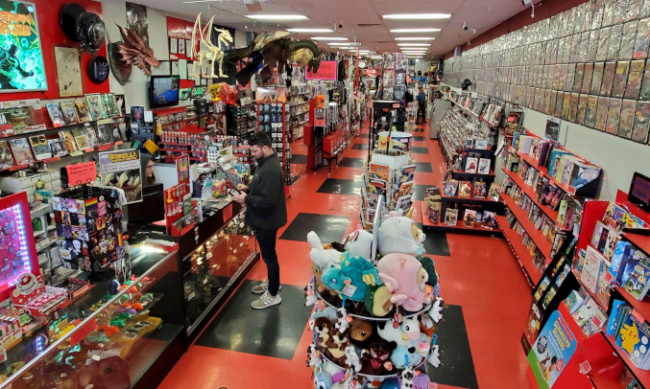
'Good People Are Responsible for a 10% Swing'
Posted by Jim McLauchlin on March 15, 2023 @ 5:04 pm CT
MORE COMICS
Starter Kit for Rebooted Universe
August 6, 2025
The box set is designed to be an entry point to the rebooted Ultimate Universe.
Whether It Wants to Accept Diamond's Consignment Agreements
August 6, 2025
The Ad Hoc Committee has filed a motion asking the court to force Sparkle Pop to decide whether it wants to assume the Diamond consignment agreements.
MORE NEWS
Images of New Starter Deck and Promos Revealed
August 6, 2025
UVS Games previewed their new Teenage Mutant Ninja Turtles booster set, for UniVersus CCG, at Gen Con 2025.
New Miniatures Booster Set
August 6, 2025
WizKids will release D&D Icons of the Realms: Monster Menagerie Revisited, a new miniatures booster set, into retail.




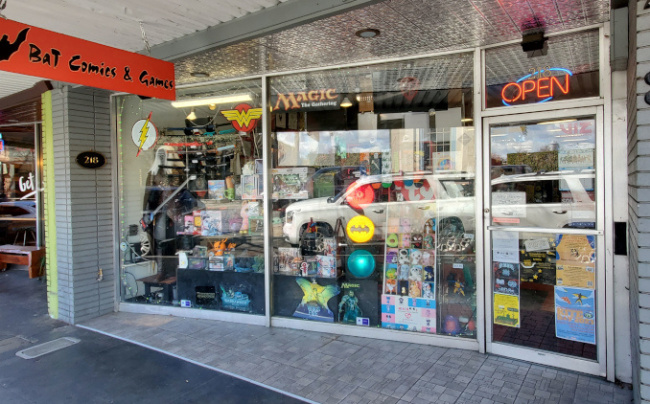
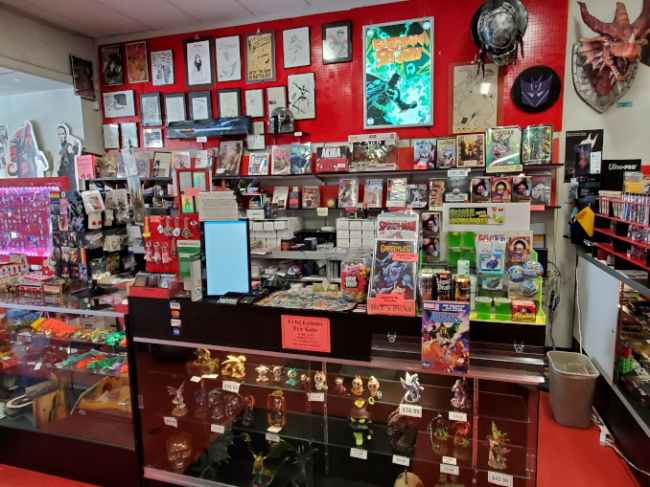
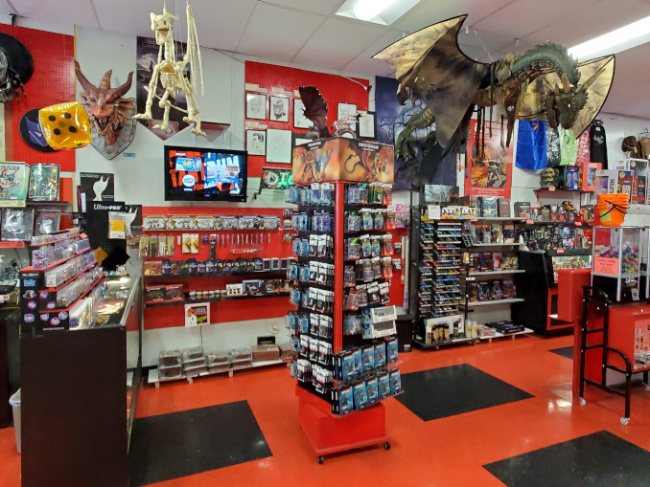
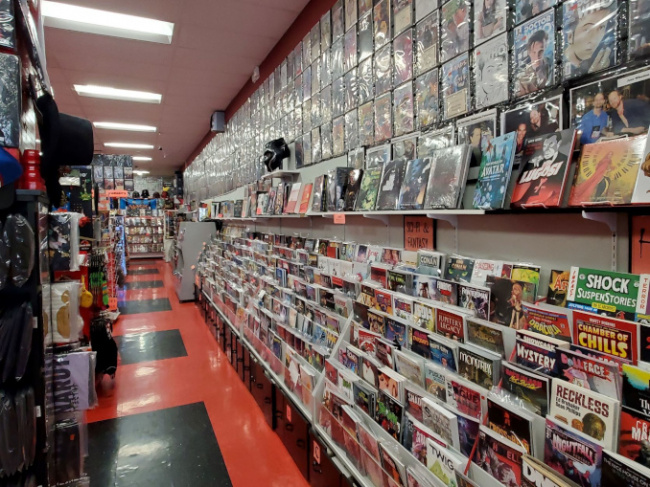
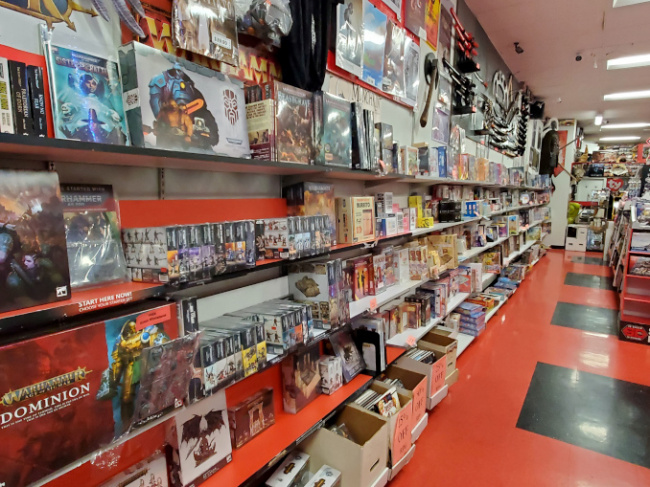
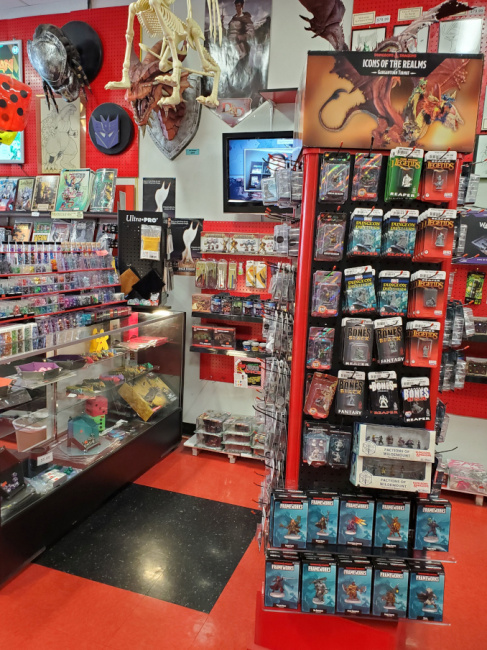
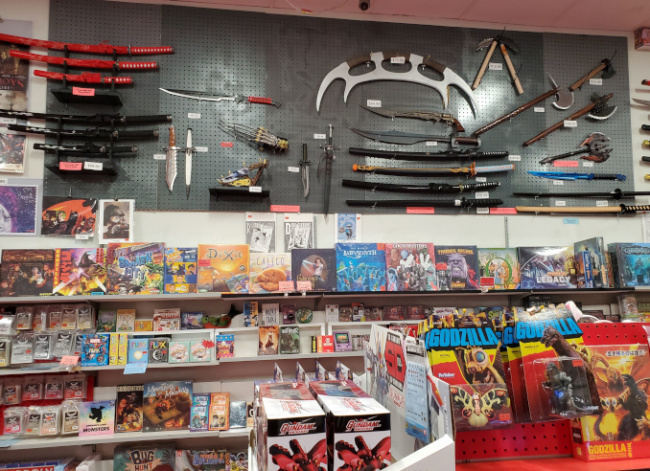
 View Gallery: 13 Images
View Gallery: 13 Images 